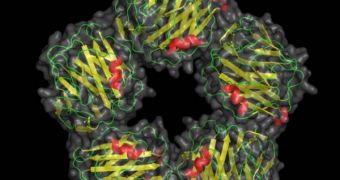The C-reactive protein (CRP), which is regularly produced by the liver, has been the target of medical research over the past few years, as studies have proposed that its presence may be a clear indicator of an increased risk of heart attack or stroke in patients. Over time, the controversy on whether the inflammation marker indeed indicates heart conditions has deepened, but a new investigation, conducted on a massive amount of people, may have struck the final nail in its coffin.
In the recent study, more than 35 experts from the United Kingdom, Canada, Germany, and other nations, have teemed up to conduct the largest research on CRP in the world. During the investigation, the team analyzed no less than 128,000 people from several countries. And while their results are in tune with others arguing that the protein doesn't play such an important role in heart conditions, its unique importance comes from the fact that it concentrated on so many test subjects. At this point, it's the largest research of its kind in the world.
In previous studies, researchers have demonstrated that the CRP is also an indicator of a host of other conditions, including type II diabetes and obesity, in addition to the alleged connection with heart diseases. However, the protein only acts in the amounts it's allowed to by its coding gene. And, so, the new study focused on developing three methods through which to raise CRP production by 20 percent in a model organism, and then watched the effects. It also analyzed more than 28,000 individuals with heart diseases, and 100,000 without them, searching for differences in the CRP levels.
The investigation revealed the fact that the genetic material had no effect whatsoever on the onset, development and end-result of heart diseases, the researchers report in today's issue (July 1st) of The Journal of the American Medical Association. “It's fairly well nailed shut. It's hard for me to imagine CRP is causal,” University of Texas Southwestern Medical Center Cardiologist James de Lemos, who was involved in the new study, says, ScienceNow reports.

 14 DAY TRIAL //
14 DAY TRIAL //